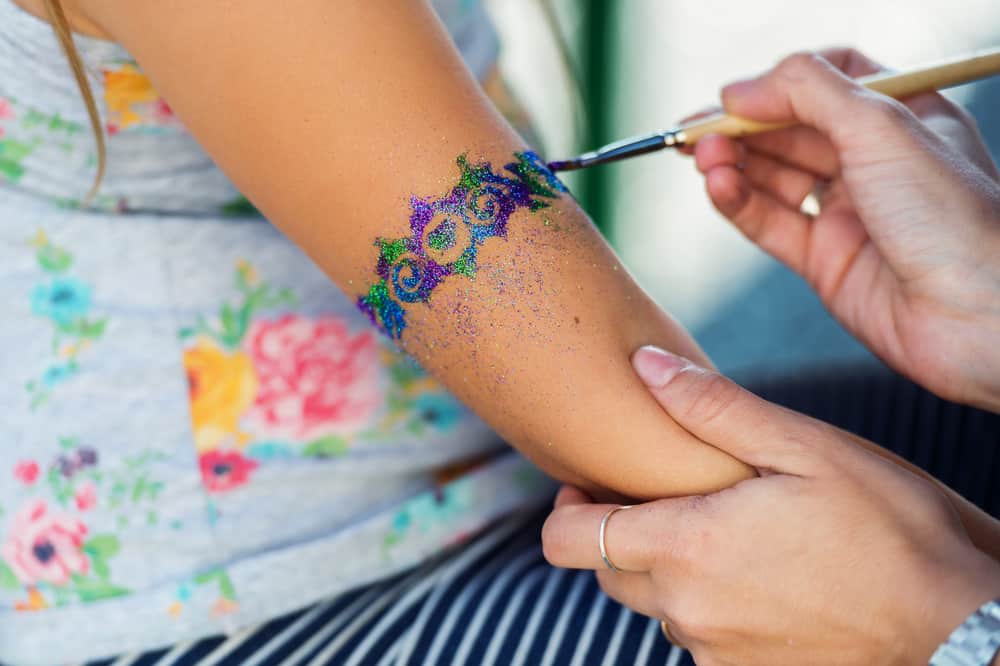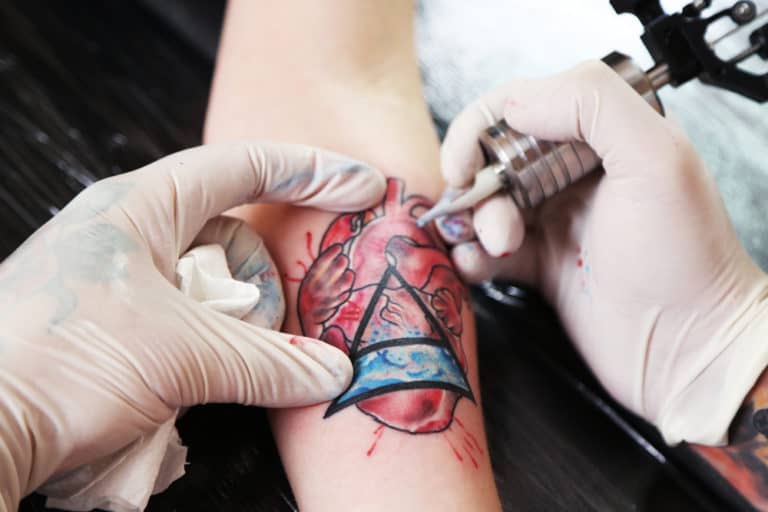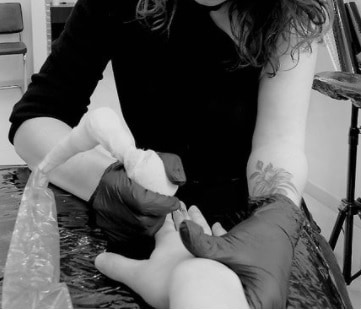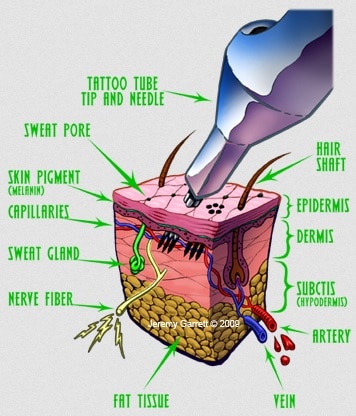Can You Tattoo Babies?
You may be wondering what would happen if you tattoo a baby out of interest or just pure curiosity. Can you tattoo babies, and what does the law say around tattooing babies?
It is seen as illegal to tattoo a baby, as it is a form of irreversible disfigurement. It is a crime to perform a tattoo on any person under the age of 18 years. If you are caught or reported of the offense of tattooing a baby or any other minor, it can be punishable with a fine or jail time.
Let’s take a look at why you should definitely not tattoo babies, what could happen if you do, and the dangers of getting a tattoo while pregnant. Read more to find out!
Why You Should Not Tattoo Babies
Tattoos are permanent because they are absorbed into your skin. Precisely put, the tattoo ink is absorbed into Fibroblasts. Even if these fibroblast cells die, the tattoo ink will be reabsorbed. Tattoos last for life because the ink becomes a permanent part of the dermis layer of your skin.
This is precisely why it would never be a good idea to tattoo babies. As the baby grows older and bigger, the tattoo would become stretched and distorted, and by the time the baby is fully developed, it would have ended up deeper and deeper in the dermis layer and appear faded and blurred.
Not only this, but the tattoo will stretch and become bigger as well, and chances are, the now full-grown adult will spend their lifetime hating you for tattooing them!
If you have looked at old tattoos before, you will have noticed that the skin pigment changes with age, which will affect the tattoo ink. Black tattoo ink first tends to turn blue and then into a greenish, aqua color.
While the skin is not fully grown and developed yet, any alteration will stretch with weight gain and loss, and well as muscle gain and loss. Any changes to the skin will inevitably change the way the tattoo looks, and changes in the skin happen mainly before we grow into adults.
Legal Consequences For Tattooing Babies And Minors
If a person is 18 years of age, they can be tattooed, but anyone under the age of 18 years is considered to be a minor and is prohibited from ink of any type. Tattoos and other permanent body modifications are getting more and more popular with young adults, especially teenagers. This action is highly illegal.
In order to prove that a defendant is guilty of tattooing a minor, a prosecutor has to be able to establish that the dependant tattooed or offered to tattoo a person under the age of 18 years. A dependent has tattooed someone when:
- The defendant has inserted any color pigment under the surface of the skin of a minor.
- By pricking or penetrating the skin with a needle or similar tool. This also applies to any form of piercings.
- Producing an indelible figure or mark that can be seen through the skin.
Tattooing a minor is seen as a misdemeanor-level offense that is punishable by either jail time or a fine. Jail time can be up to six months, and the fine can go up to $1,000.
The judge may punish the dependent with any other conditions of probation that they deem appropriate.
In addition, any tattooist or tattoo parlor found guilty may also have their license revoked permanently as a result of this serious offense.
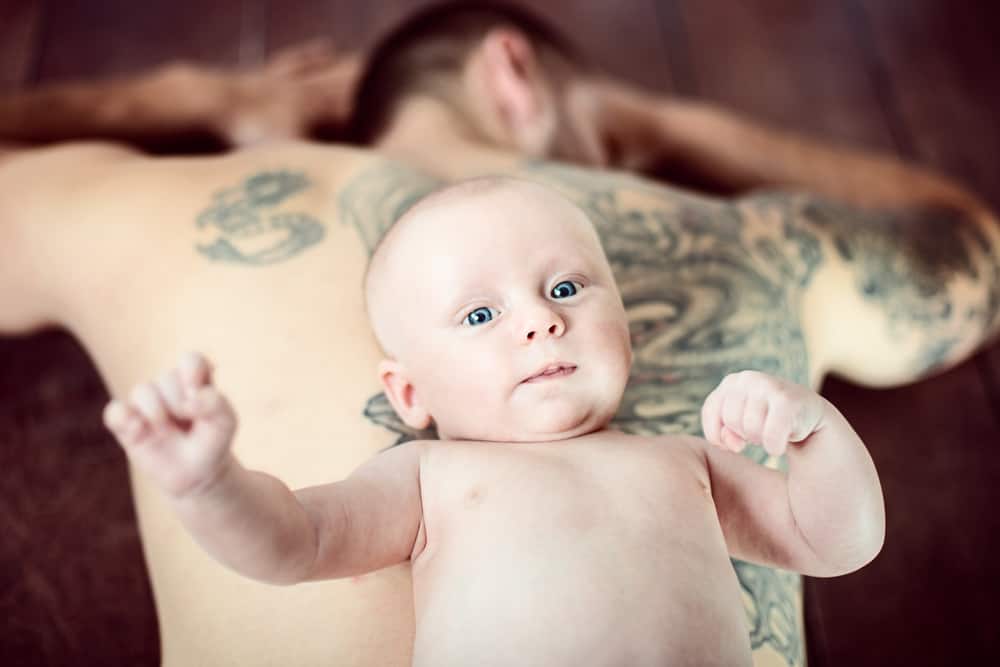
The Risks When Getting Tattooed While Being Pregnant
Getting tattooed is a bit of a grey area when it comes to pregnancy. There is a lack of research on this topic, which means that there is no definite rule or law about its safety.
However, there are some known risks of getting a tattoo, which can cause significant complications in women who are pregnant. Let’s take a look at a few:
- Possible Chance Of Infection
One of the primary risks of getting a tattoo is the increased risk of getting an infection. If your tattoo artist uses dirty or contaminated needles, you can be at risk of getting bloodborne infections.
The primary bloodborne infections associated with tattoos are hepatitis B, Hepatitis C, and human immunodeficiency virus (HIV).
A mother with hepatitis B can easily pass on her infection to her baby at birth. Babies born with hepatitis B have a 90% chance of having a lifelong infection, and studies show that one in four of these babies will die due to health complications from the infection if it is left untreated.
There is also a 6% that a mother with hepatitis C can pass on her infection to her newborn baby.
Without correct medical treatment, the chance of a mother with HIV passing on her infection to her baby can range between 15% and 45%.
- The Toxic Tattoo Ink.
Even though an average tattoo needle is only pricked an eight of an inch into the client’s skin, some tattoo ink contains heavy metals such as lead, arsenic, and mercury. All three of these ingredients can be a massive threat to women who are pregnant, especially during the first trimester when the main organs of the baby are still developing. The exposure to heavy metals during tattooing can even affect the baby’s brain development.
It can also significantly increase the baby’s chances of stillbirth and the mother of having a miscarriage.
Lastly, your skin changes dramatically during pregnancy. When you are pregnant, your body will constantly grow and change to adapt to the baby growing. Depending on where you get a tattoo, the ink may not look the same after you have given birth and your body has completely healed. The tattoo may look misformed.
Conclusion
There you have it! You should never tattoo a baby or any minor under the legal age, as it could result in a state crime, and you could be charged with a fine and even jail time. Apart from this, tattooing any person who is still growing would make for an ugly tattoo anyways.
If you or your tattoo parlor has been charged with offering to tattoo or tattooing a minor, you must discuss the case with your lawyer or criminal defense attorney as soon as possible.
References
- https://www.quora.com/If-you-tattoo-a-young-child-how-does-that-tattoo-change-as-they-grow
- https://www.quora.com/If-you-tattooed-a-newborn-baby-would-the-tattoo-eventually-be-absorbed-and-go-away-by-the-time-they-are-80-years-old-How-do-tattoos-last-so-long
- https://edition.cnn.com/2012/07/06/living/too-young-tattoo/index.html
- https://www.webmd.com/parenting/is-it-safe-to-get-a-tattoo-while-pregnant#1

